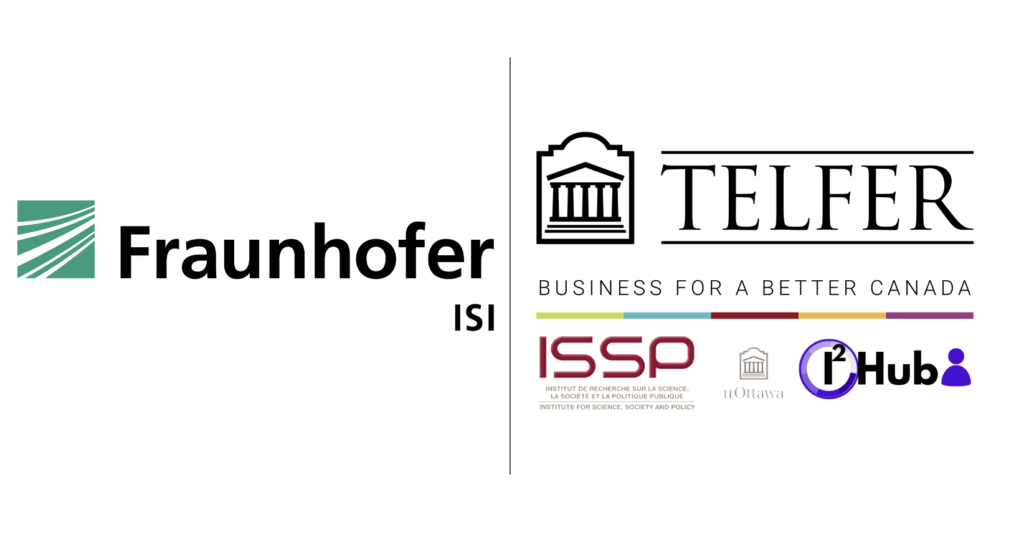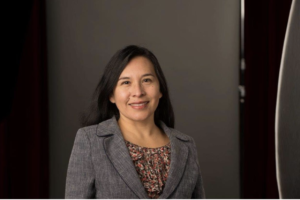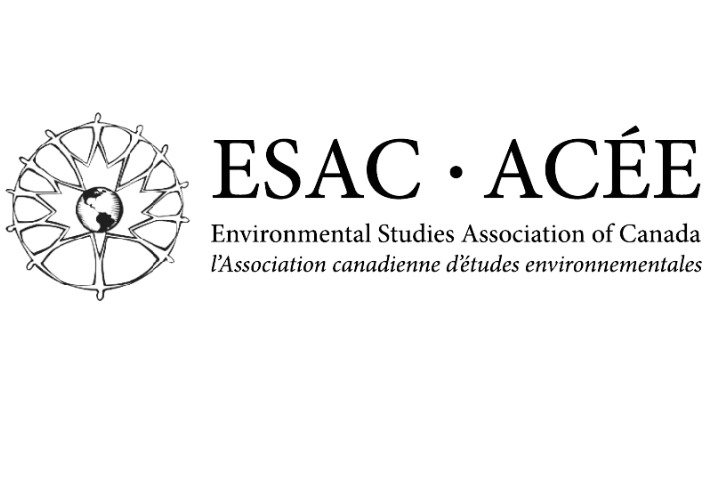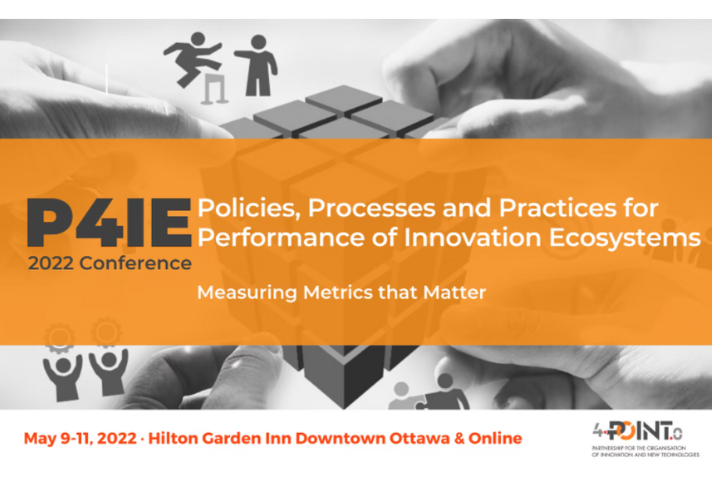Previous events
Missed an event?
Don’t stress! See below for past events…including pdf presentations and video recordings!

Let's chat...
The Inclusive Innovation Café
Responding to popular demand, the Inclusive Innovation Café series is your chance to get involved in discussions on inclusive innovation on a regular basis.
We launch the series with a conversation on “Inclusive Innovation Projects / Events – Why are they attractive to others? “.
Bring your own experience organizing or being involved in an inclusive innovation project or event, and help co-create this format!
Date: Tuesday, March 19, 2024
Duration: 11:30 - 13:00
Location: Virtual
no recording available
Distribution Sensitive Innovation Policies: Turning inclusive innovation from rhetoric to action
Dan Breznitz
Inclusion and government business support programs
Abstract
It is clear that innovation and inequality are salient questions to both business and political leaders. Indeed, many have latched to urging for “inclusive innovation” when they wish to support innovation that benefits a broad swathe of society, often individuals who are economically marginalized. But how? While statements such as “Innovation is the path to inclusive growth” makes CEOs and politicians sounds good, details about how this goal is to be achieved are ‘somehow’ lacking. A quick global survey of inclusive innovation highlights an inflation of rhetoric coupled with almost complete dearth of action and details.
In this talk, based on several papers co-authored with Amos Zehavi, contend that there are already set of policies that achieve these goals – we termed them Distribution-Sensitive Innovation Policies. These are policy actions devised with the aim of increasing growth while taking into account economic distribution. Looking at diverse countries from the United State, to Canada, Sweden, Poland, Israel and Germany, DSIPs policies work by benefiting disadvantages group, specifically we look at Low skilled manufacturing workers, The economic periphery, ascriptive minorities and People With Disabilities (PWD).
DSIPs or by no mean a panacea for all social and economic ills. However, given that economies are no better than the societies in which they are embedded; it is of critical importance that business and political leaders seriously turn their attention to them. We desperately need to maximize both growth and equality in our society, the consequences of not doing so are just too dire. DSIPs offers a venue of constructive private-public experimentation

Dan Breznitz is a University Professor and Munk Chair of Innovation Studies at the Munk School of Global Affairs and Public Policy with a cross-appointment in the Department of Political Science of the University of Toronto, where he is also the Co-Director of the Innovation Policy Lab and a Senior Fellow of Massey College. In addition, he is a Fellow of CIFAR where he Co-Directs the program on Innovation, Equity and the Future of Prosperity. Professor Breznitz is known worldwide as an expert on rapid-innovation-based industries and their globalization, as well as for his pioneering research on the distributional impact of innovation policies. He has been a member of several boards, and has served as an advisor on science, technology, and innovation policies to multinational corporations, governments, and international organizations. He served as the Clifford Clarke
Economist of the Canadian Department of Finance during 2021-22, where he was responsible for new economic thinking on the restructuring of the Canadian economy, including the creation of new agencies such as the Canadian Innovation Corporation. Before moving to U of T, Breznitz spent eight years as a professor in Georgia Institute of Technology and was the cofounder and CEO of a software company in Israel. He is the recipient of several honours including a Sloan Fellowship, and the author of numerous papers, chapters and edited volumes as well as award winning books including Innovation and the State: Political Choice and Strategies for Growth in Israel, Taiwan, and Ireland, (winner of the Don Price best book on Science, Technology and Politics) and The Run of the Red Queen: Government, Innovation, Globalization, and Economic Growth in China (winner of the Susan Strange Best Book in International Affairs). His recently published book, Innovation in Real Places: Strategies for Prosperity in an Unforgiving World, that offers pragmatic advice while debunking dangerous myth on innovation, growth and prosperity, was chosen by the Financial Times as one of the best books of 2021, and won the inaugural Balsillie prize for Public Policy given by the Writers’ Trust of Canada, as well as the Donner Prize for the Best Book on Public Policy.
Date: Wednesday, March 6, 2024
Time: 14:30 - 16:00 (EST)
Location: Virtual
Joint Telfer/ISI Fraunhofer Workshop:
(Super)Diversity and Inclusiveness in Innovation - Indicators and Insights

Researchers from North America and Europe will discuss existing, emerging and potential future approaches to the study of diversity, inclusiveness and industrial innovation, with a focus on issues of measurement. The participation of graduate students from Telfer’s research-based graduate programs and Canadian policymakers will add breadth and depth to discussions and ensure the event leads to future action.
Both academic and policy-oriented discussions of innovation have expanded in recent years to include considerations beyond simple economic output (GDP growth, profits, etc.). Developing and releasing the potential of innovations to improve the lived experiences of all, is central to this needed transition to a more inclusive approach to innovation. For individuals and groups who have been historically marginalized economically and/or socially, the benefits could be transformative. But such a radical shift in the way that innovation systems are observed, measured and managed requires the development of new research tools, the adoption of new methodologies and application of different analyses. This workshop will assess, where we are, where we are going and what will be required of researchers and policy-makers to realize this new vision for innovation in the twenty-first century.
Date of event: Tuesday, February 27, 2024
Click to watch:
8.45am | Arrival – coffee |
9am | Welcome |
9.15am | Session 1 – Existing approaches to Gendered Innovation
|
10.30am | Break and networking |
11am | Session 2 – Superdiversity and Emerging approaches to measurement Presentations (10-15 mins each, and then moderated discussion):
|
12pm | Lunch – Jakob Edler, Fraunhofer (video) Lunch conversations in person, and in breakout groups online |
1.30pm | Session 3 – Analyses beyond traditional economic indicators Presentations (10-15 mins each, and then moderated discussion):
|
2.30pm | Break and networking |
3pm | Session 4 – Instituting a structure for broader projects; systems transition
|
4pm | Housekeeping and wrap up |
4.30pm | End of day |
Beyond Endless Frontiers Training:
How to translate scientific materials for a policy audience
The greatest challenges facing Canadians require input from science and innovation. Promoting interplay and integration at the intersection of science, innovation, policy, and governance requires investing in the skills of the individuals who work in these different areas in order to build understanding and the competencies to work collaboratively across functions and sectors, including government, academia, the private sector, and civil society.
But, how can we work together across science, innovation and policy if we speak different languages? Scientists are taught to communicate in a manner that reflects the culture of science, which is different from the culture of society, of policy, and of politics. This 2-hour session will examine the two cultures of science and policy and how culture informs our communication. Participants will learn foundational concepts for working with and communicating to non-scientific audiences and tips on how to translate scientific materials for a policy audience.
The Beyond Endless Frontiers SSHRC PDG project is offering a free training session open to graduate students and postdocs (advanced undergraduate students or early career researchers welcome, too).
Date of event: Tuesday, February 20, 2024
Click to watch:
New approaches and methodologies for measuring impact of innovation policy
Claudia De Fuentes, Fernando Santiago & Fernando Canto
New approaches for impact assessment on inclusive innovation practices
Abstract
Fernando Santiago, Fernando Cantu and Claudia De Fuentes will share their insights on new approaches and challenges for the development of performance indicators, and measuring impact of industrial and innovation policies. They will elaborate from their experience related to industrial and innovation policies from a Macro perspective. The discussion will address some new initiatives for the definition of indicators to address the SDGs, with emphasis on impact assessment approaches to inclusive innovation and sustainable development.
 Dr. Claudia De Fuentes: Associate Professor of Innovation and Entrepreneurship at the Sobey School of Business at Saint Mary’s University. Her research experience includes innovation in firms, systems of innovation, the creation and use of knowledge in a globalized economy, innovation in global value chains, new forms of academia–industry collaboration, and science, technology and innovation policy. She has collaborated with several research groups to work on projects financed by SSHRC (Canada), CONACYT (Mexico), the Treasury Board of Canada Secretariat (TBS), the Inter-American Development Bank (IADB), the Foro Consultivo Científico y Tecnológico (FCCT) in Mexico, and for the International Development Research Centre (IDRC)
Dr. Claudia De Fuentes: Associate Professor of Innovation and Entrepreneurship at the Sobey School of Business at Saint Mary’s University. Her research experience includes innovation in firms, systems of innovation, the creation and use of knowledge in a globalized economy, innovation in global value chains, new forms of academia–industry collaboration, and science, technology and innovation policy. She has collaborated with several research groups to work on projects financed by SSHRC (Canada), CONACYT (Mexico), the Treasury Board of Canada Secretariat (TBS), the Inter-American Development Bank (IADB), the Foro Consultivo Científico y Tecnológico (FCCT) in Mexico, and for the International Development Research Centre (IDRC)
 Dr. Fernando Santiago: Industrial Policy Office, Capacity Development and Industrial Policy Advice, United Nations Industrial Development Organization (UNIDO). Fernando Santiago is an Industrial Policy Officer at the United Nations Industrial Development Organisation in Vienna. He specializes in the provision of industrial policy advisory services, and capacity development activities on industrial policy and innovation policy in developing countries. Fernando serves as the UNIDO’s focal point on topics related to science, technology innovation (STI), including for the UN Inter-Agency Task Team on STI for the Sustainable Development Goals (IATT). He is also member of the Scientific Board of the LALICS network (Latin American Network for the study of Learning Systems, Innovation and Skills Construction), and a member of the Technical Advisory Committee of the intergovernmental Commission on Science and Technology for Sustainable Development in the South (COMSATS). Before joining UNIDO, Fernando’s professional experience included research, teaching, public sector programming and private consulting services obtained in Mexico and Canada. His research combines qualitative and quantitative methods and has been published in high-quality journals, including Research Policy, Economics of Innovation and New Technology, or Science and Public Policy. Areas of expertise include fundamental research, STI policy, industrial policy, and organizational learning. Fernando has mentored young scholars and researchers, early career professional and taught undergraduate courses in international economics and development.
Dr. Fernando Santiago: Industrial Policy Office, Capacity Development and Industrial Policy Advice, United Nations Industrial Development Organization (UNIDO). Fernando Santiago is an Industrial Policy Officer at the United Nations Industrial Development Organisation in Vienna. He specializes in the provision of industrial policy advisory services, and capacity development activities on industrial policy and innovation policy in developing countries. Fernando serves as the UNIDO’s focal point on topics related to science, technology innovation (STI), including for the UN Inter-Agency Task Team on STI for the Sustainable Development Goals (IATT). He is also member of the Scientific Board of the LALICS network (Latin American Network for the study of Learning Systems, Innovation and Skills Construction), and a member of the Technical Advisory Committee of the intergovernmental Commission on Science and Technology for Sustainable Development in the South (COMSATS). Before joining UNIDO, Fernando’s professional experience included research, teaching, public sector programming and private consulting services obtained in Mexico and Canada. His research combines qualitative and quantitative methods and has been published in high-quality journals, including Research Policy, Economics of Innovation and New Technology, or Science and Public Policy. Areas of expertise include fundamental research, STI policy, industrial policy, and organizational learning. Fernando has mentored young scholars and researchers, early career professional and taught undergraduate courses in international economics and development.
 Fernando Cantu Bazaluda The Chief Statistician of the United Nations Industrial Development Organization (UNIDO), where he is in charge of delivering UNIDO’s international mandate on producing and dissemination global industrial statistics, including SDG 9 indicators. Before his current position, he worked as a statistician and economist at different United Nations agencies, other international organizations, and academia. His professional interests include official statistics, predictive analytics, composite indicators, and metrics of performance, applied to manufacturing and other areas of sustainable development. He holds a PhD in Econometrics from the University of Geneva, Switzerland
Fernando Cantu Bazaluda The Chief Statistician of the United Nations Industrial Development Organization (UNIDO), where he is in charge of delivering UNIDO’s international mandate on producing and dissemination global industrial statistics, including SDG 9 indicators. Before his current position, he worked as a statistician and economist at different United Nations agencies, other international organizations, and academia. His professional interests include official statistics, predictive analytics, composite indicators, and metrics of performance, applied to manufacturing and other areas of sustainable development. He holds a PhD in Econometrics from the University of Geneva, Switzerland
Date of event: Friday, February 9th, 2024
Click to watch:
Science, inclusivity, indigenous economic growth
Katharina Ruckstuhl & Madeline Judge
Science-based open innovation and inclusivity in Aotearoa New Zealand. What works in mission-led programmes
Abstract
The Science for Technological Innovation (SfTI) National Science Challenge has been in place since 2015. Its mission is to enhance the capacity of New Zealand to use physical sciences and engineering for economic growth and prosperity. An important part of SfTI is a longitudinal project – Building New Zealand’s Innovation Capacity (BNZIC). BNZIC looks not just at what the RSI system does, but how it is done. This matters because the ‘how’ of science contributes to its success, and therefore strengthens the RSI system in turn strengthening the economy and well-being of people and environment. In this presentation, the Māori co-lead of BNZIC, Katharina Ruckstuhl, and Research Fellow, Maddie Judge, will explain how a focus on inclusivity – of women, early career researchers, industry, and Indigenous Māori – has been a key feature of SfTI’s approach. The presentation will assess what has worked and how we did this. |

Katharina Ruckstuhl is an Associate Professor and Associate Dean Māori at the Otago Business School, University of Otago, Dunedin, Aotearoa New Zealand. Katharina has strong connections to her tribal group of Ngāi Tahu, with whom she has governance and commercial director roles. Katharina leads or is a researcher in several science and technology focussed programmes. She is a recent Director of ORCID, a Deputy Director of the Dodd-Walls Centre of Research Excellence, and a member of the Indigenous caucus of the IEEE working party on Standards for Indigenous people’s data. She has published on Māori language, resource extraction, Māori entrepreneurship, and data sovereignty and is a 2023-2024 ENRICH Global Chair.

Date of event: Thursday, January 25, 2024
Click to watch:
Presented by Dr. Sandra Schillo
Inclusion as a research paradigm
How research and collaborative initiatives focusing on inclusive education and innovation, including among Indigenous peoples, are informing practice.

Date: June 3, 2022
Environmental Studies Assocication of Canada
Transitions towards Inclusive Innovation – People, Planet AND Profit?
This session aimed to spark an interdisciplinary conversation on innovation paths towards global impact and system transformations.

Date: May 18, 2022
Ottawa Science Policy Network
OSPN Science Policy 101
Panel on EDI in Research and Policy
Panelists included: Sandra Schillo, Nathalie Podeszfinski, Steffany Bennett, Coen Sanchez, Jason Millar, Olga Pena

Date: May 12, 2022
Policies, Processes, and Practices for Performance of Innovation Ecosystems
4POINT0 2022 International Conference
Discussant for 4 papers on the topic of: Sustainable/Inclusive/Responsible
Innovation Ecosystems

